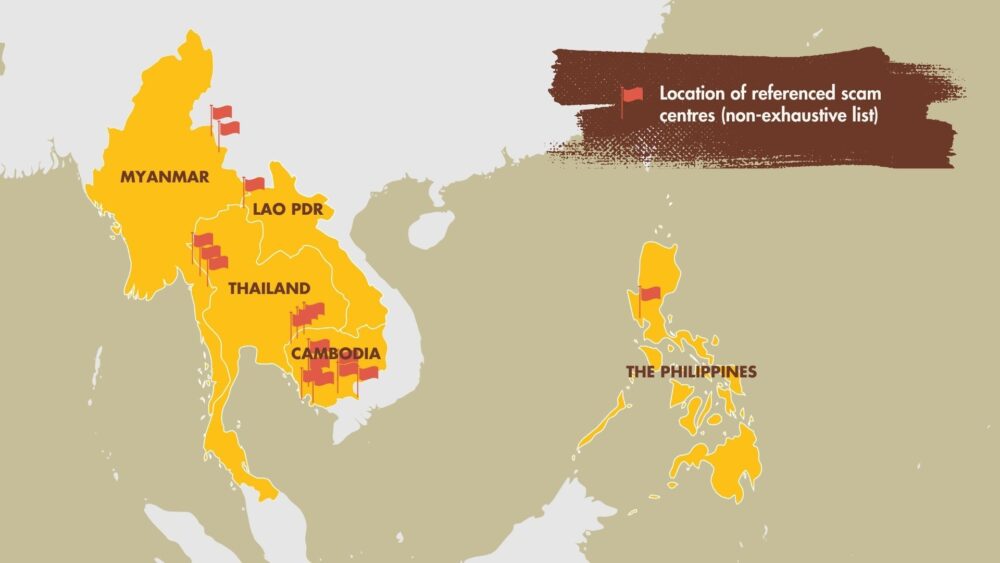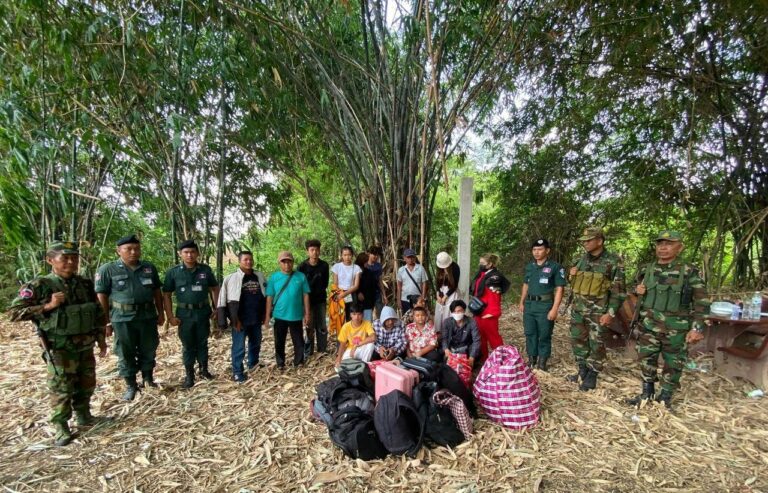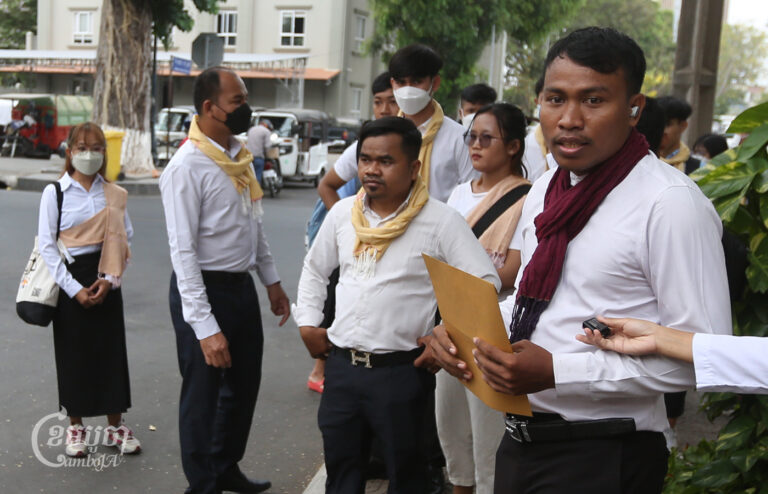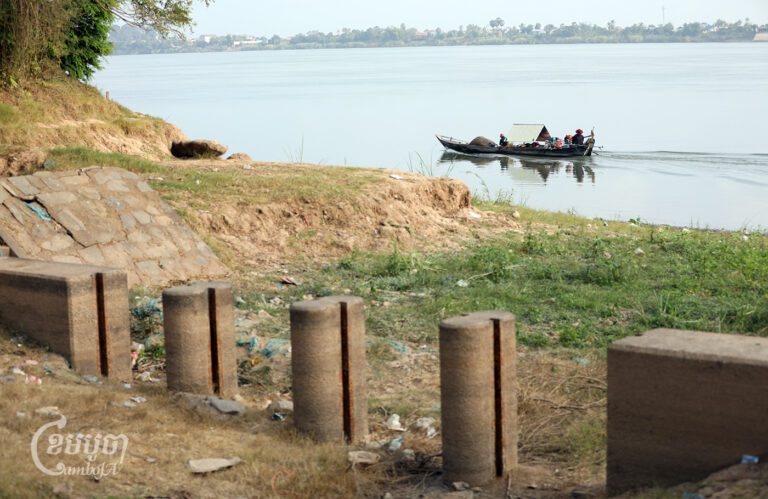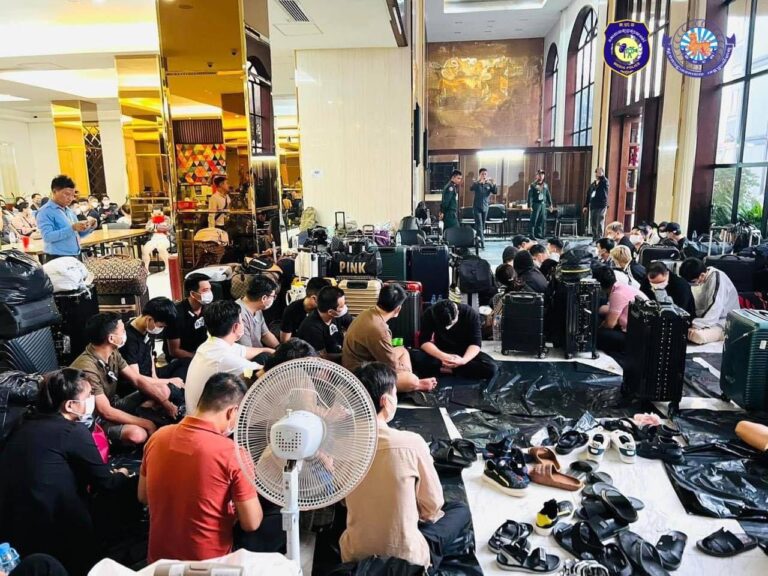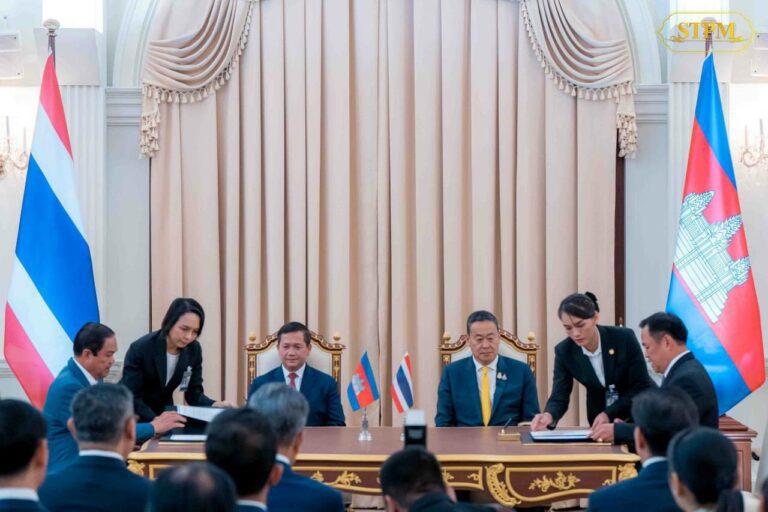At least 100,000 people have been forced to carry out online scams in Cambodia, according to a UN Human Rights report released Tuesday, but Cambodian government officials say they want to see more evidence for the estimate.
“We find it difficult to accept that in Cambodia around 100,000 people may be caught in the network of criminals who were forced to do online scams,” said Chou Bun Eng, vice chairperson of the National Committee for Counter Trafficking in Persons (NCCT). “Cambodia is not so big. There are 16 million people, so if there are 100,000 scammers, where are they?”
The report says it draws on primary and secondary research by the UN Human Rights Office,
including victim testimony. All of the interviews and consultations for the report were conducted by the Office Of The High Commissioner For Human Rights (OHCHR) “in accordance with its standard practices and methodology” that applies “the do no harm principle and a victim/survivor-centered approach.”
The approximate number of Cambodian cyber scam victims is the result of “credible estimates” based on information on file with OHCHR. Representatives of OHCHR did not immediately respond to requests for comment.
The Cambodian government has repeatedly said it is cracking down on human trafficking, after initially denying the growth of scam compounds in the country. In June, for the second year in a row, the US State Department’s Trafficking in Persons Report ranked Cambodia as a Tier 3 country, the lowest ranking, in part for not making “serious and sustained” efforts to eliminate severe forms of trafficking.
Bun Eng said the UN’s Tuesday report just included a number without evidence and that the government wants to know the “specific arguments” behind the estimate.
She claimed that some of the people the government has helped release from their places of employment were not human trafficking victims. These workers merely requested government assistance when they wanted to change jobs before they had finished a contract, she said, echoing past denials of forced labor by authorities following the release of workers.
Interior Ministry spokesperson Khieu Sopheak said the government is “trying to crack down” on online scam operations.
“If they said there are 100,000, please show the evidence,” he said before hanging up the phone.
This is not the first time government officials have questioned the UN’s estimate of human trafficking victims in the country.
A September 2022 UN correspondence stated that the number of trafficked persons in Cambodia may be as high as 100,000 based on reports received by UN offices. The letter expressed “serious concerns” that the Cambodian government may be failing to take measures to prevent human trafficking and that the efforts made by the government may not meet the country’s “obligations under international human rights law.”
In the NCCT’s response in November, Bun Eng wrote that the government was “surprised” at an “accusation” that there had been 100,000 trafficked persons in Cambodia by the end of 2021. The government’s letter stated that the human trafficking offenses happening in the country currently are “new experiences for Cambodia to tackle.”
The UN’s report documents the history of online scam operations in the region, coinciding with the growing popularity of online gambling and casinos in Southeast Asia. The number of casinos in Cambodia nearly tripled from 57 in 2014 to 150 in 2019, it states.
Many of the places in the region where people are forced into online criminal activity are places with weak governance and rule of law. The pandemic led to criminals targeting stranded and unemployed migrant laborers to work in scam compounds.
As of July 2023, online scam centers are reportedly operating in Phnom Penh, Kandal, Pursat, Koh Kong, Preah Sihanouk, Oddar Meanchey, Svay Rieng, including in Bavet, and within the Dara Sakor Special Economic Zone (SEZ) and the Henge Thmorda SEZ.
Cambodia has shifted from a country of origin for trafficking victims to a destination where foreign victims are trafficked to, according to the report. It also mentions concerns of Cambodia lacking protection services for victims who are men, as men make up the majority of people trafficked into online scams.
Am Sam Ath, director at the human rights group Licadho, said he is confident in the data presented in the UN’s report.
“The UN is a large international organization focusing on human rights, so before they do a report, they collect information that has enough arguments to make it public,” he said. “I believe that what they report has enough [data] to make its arguments.”
Cambodia should consider the recommendations included in the report, he said, and the government should provide its officials with technical training to better crack down on online scams that involve modern technology.
“Cambodia should check what we have missed in the past, look back at what we have not yet done, and try the best to prevent and crack down on human trafficking and online scams,” he said. “It’s better than rejecting without looking back at what we have missed.”


